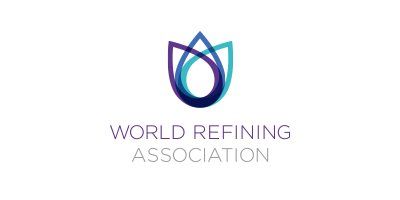

- Home
- Companies
- World Refining Association
- Articles
- Caribbean Refining Industry Case Study ...
Caribbean Refining Industry Case Study – Strategies for Short to Medium Term Viability
Thought leaders from the region, Telroy Morgan, Manager of Production at Petrojam, as well as Jose Bautista, Technical Manager at Refidomsa participated on our panel, moderated by David Monzon, Partner at Arthur D. Little.
“Greater regional cooperation should be strengthened during this time in terms of products, as well as storage, and even in terms of financing working capital”, says Jose Bautista, Technical Manager at the Dominican Republics’ Refidomsa.
This past September, the World Refining Association held its very first digital event – LARTC Virtual – to facilitate knowledge sharing in the context of the Covid-19 pandemic. The WRA held a featured panel discussion on the Caribbean refining sector and how it could remain competitive both regionally and globally in the current climate.
Challenges to the Region
In 2019 the Caribbean Refining Industry was looking forward to a prospective renewal with Limetree Bay Ventures, expecting a 2.17 Billion-pound overhaul of the St. Croix refinery – once one of the largest in the world. In addition to the St Croix refinery was the Klesch Group purchase and planned revamp of the La Isla Refinery. The German company had ambitious plans to have the refinery up and running after years of it operating only as a storage facility. These investments represented an opportunity to tap into regional demand for gasoline, diesel and marine fuels in Latin-America and the Caribbean. Particularly in light of the decreased supply of crude oil from Venezuela and the challenges facing PDVSA in recent years, which has impacted the region dramatically. Latin America as a region is a net exporter of crude oil while importing refined and petrochemical products. It was also hoped that the aforementioned investment would offset this imbalance in demand with local supply. In 2019 Caribbean refiners were gearing up to prepare for the increased demand of low sulfur fuels with the IMO 2020 regulations coming into effect in January. IMO regulations were originally perceived as one of the biggest challenges for refining in 2020. The outbreak of Covid-19 only served to exacerbate difficulties facing Caribbean refiners, who have seen several plants in the region close in recent years. Impacts to Caribbean refiners as in other regions of the world, has resulted in decreased demand, inability for refiners to run at full capacity as well as lack of storage capacity for inventory.
Throughout our live panel discussion our speakers highlighted key strategies’ they are currently following in order to meet the challenges of the unprecedented global pandemic and its impacts on the refining sector.
Traditionally island nation tourism was key in the consumption of jet fuel in the region. With the impacts of Covid-19 and the contraction of fuel demand our panelists highlighted the necessity to diversify their product portfolios. This has proven to be a key strategy for balancing production with offtake. Telroy Morgan was quick to highlight that for Petrojam, Jet Fuel caused an immediate block. Adapting to this challenge, Petrojam has begun to blend jet fuel off into diesel and to blend kerosene into jet fuel in order to push on the gasoline side. Telroy noted that this forms part of a longer term strategy for survival as gasoline offtake was almost rivaling its prior levels in the wake of Covid-19. Telroy describes these strategies’ as a, “balancing act”, and advised the need to closely manage the demand for these products in the context of a Covid-19 economy.
Telroy further stated that although Petrojam has switched to low sulfur crude, sourced from Brazil, to align with IMO 2020, there has surprisingly been an increase in demand for high sulfur crude. Petrojam has responded to this light at the end of the tunnel in the short term by brining higher sulfur crude into the mix and looking to push asphalt production in the region. By utilizing this strategy, the production will provide greater margins, unblock some of their HSFO inventory and provide medium term viability to the refinery.
In a similar way, Refidomsa, is engaging with the Dominican Republic Government on projects around natural gas for energy in an effort to diversify their portfolio during this time.
